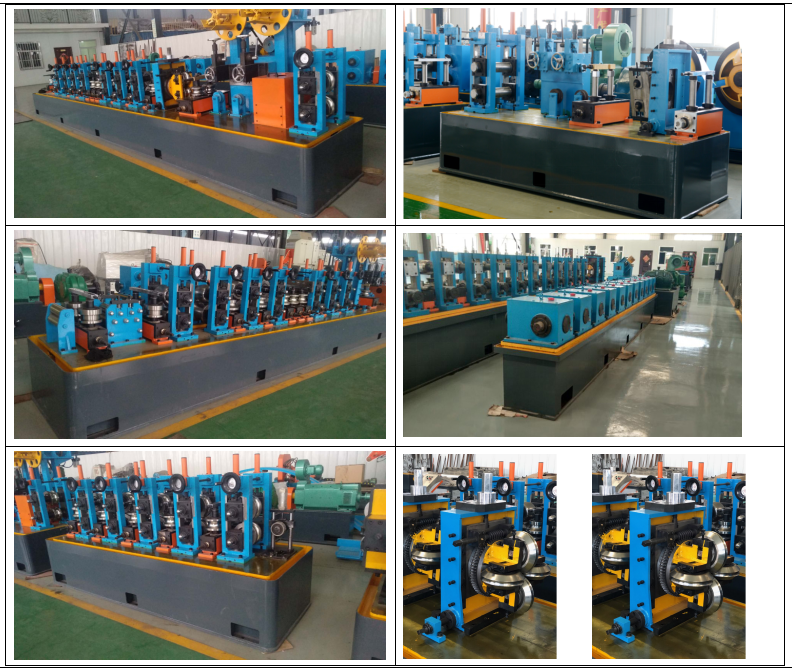Introduction
Steel pipes are the unsung heroes of the industrial world, supporting infrastructure in a wide range of forms and uses. There is no doubt that steel tubes are used in all walks of life, ranging from high-rise buildings to offshore oil platforms; from gas pipelines to automobile manufacturing etc. The manufacturing process requires efficient and highly advanced steel pipe production lines that are essential in catering to the needs of various sectors.
Steel pipes and their role in the Modern Industry
Numerous applications call for the unique combination of strength, durability, and flexibility that steel pipes offer. In construction they make up the frame of buildings and bridges. In oil and gas, they transport resources across long distances. The steel pipes are also specific for precision and reliability with the various mechanical parts & the automotive industry. Steel pipes can be used in electrical conduit for wiring. Steel is resistant to corrosion, it also helps in the reduction of costs and is recyclable which makes steel pipes an environmentally safe choice.
Steel Pipe Production Lines Components and Processes
The steel pipe production line is a complete set of equipment which can be directly used to obtain finished pipes from the raw materials. Core equipment consists of billet induction furnaces, piercing mills, rolling mills, sizing machines cooling systems and quality control stations. It starts by heat-treating the billet to extreme malleability then piercing it (essentially causing a hole in the middle) to from hollow tubing. Rolling: Rolling and sizing to shape the pipe as per dimensions followed by Cooling & Heat treatment in order to improve material properties. The process itself needs to be controlled with the highest levels of quality to maintain the same and predictable level (reliability).
What makes steel pipe production lines efficient and automated
Output speed of steel pipe production line the manufacturing ability of equipment determine its significance in supply pipeline. These all processes are done with the precision and consistency based on automation and robotics. Reduction of wastage — Just in time production methods reduce the lead times and thus lessens storage cost thereby producing better overall results. In addition, the modern production line makes it possible to customize for different industries and be more versatile in steel pipes.
Technological advancements in steel pipe processing
With the assistance of technology, new designs as well as advancements in steel pipes through material science have led to changes in the properties of steel pipes. Pipes are constructed from advance materials designed to improve the pipes corrosion and high-pressure resistance. Improve the Environment — Making steel pipe uses a lot of energy and can also release greenhouse gases, so environmentally friendly production process are being developed to reduce environmental cost. Smart manufacturing is even more cost- and time-effective due to the integration of IoT and AI, producing Products at a faster rate and with higher precision.
Steel Pipe Production Problems and Solutions
Challenges in steel pipes manufacturing: Steel pipe production involves the challenges of maintaining material quality and consistency, standards for each industry, and application requirements. Possible solutions include material testing and investment in the latest equipment, all of which require state-of-the-art and continuous process improvements. The adaptability to market changes and environmental legislation are also the keys to their resistance on the process of steel pipe production lines.
The Influence of Steel Pipe Production Lines on Industry and Infrastructure
Steel pipe production lines affect the industrial and infrastructure industries. These are critical for the creation of contemporary infrastructure, giving power to heavy industries and allowing technology progress across a wide range of upstream enterprises and also promoting sustainable construction techniques. The high stakes of these production lines — both in commercial and MILOS advancements — mean that they are required to be reliable and efficient in order for growth and innovation to continue.
Conclusion
A steel pipe production line is a vital part of current industry because of producing high-grade steel pipes and all over the globe at scale. These production lines are always evolving, with new technology and techniques striving to improve efficiency — along with other sustainability components. With so many industries continuing to require steel pipes for their strength and versatility, it is safe to say that innovation and adaptation in steel pipe production lines will remain crucial aspects of the industrial development process. The future opportunity to define those spaces with steel pipes is immense and these production lines that produce them are the unsung heroes of modern manufacturing.
Table of Contents
- Introduction
- Steel pipes and their role in the Modern Industry
- Steel Pipe Production Lines Components and Processes
- What makes steel pipe production lines efficient and automated
- Technological advancements in steel pipe processing
- Steel Pipe Production Problems and Solutions
- The Influence of Steel Pipe Production Lines on Industry and Infrastructure
- Conclusion

